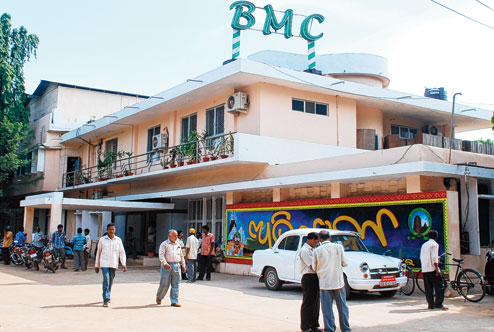Bhubaneswar: In view of the large-scale use of banned plastics and polythene in the Capital city, the civic authorities have decided to intensify enforcement by forming additional squads.
Apart from the two central squads within the civic area, Zonal Deputy Commissioners (ZDCs) of Bhubaneswar Municipal Corporation (BMC) will also conduct raids by forming at least two exclusive squads in their respective zones to have a larger impact on banning polythene and plastics below the prescribed limits of 50 micron.
As per the direction of BMC Commissioner, all ZDCs will enforce plastic ban in their respective zones every Wednesday from 8 am to 2 pm with the help of local police. There are three ZDCs — North, South-East and South-West regions — under BMC.
Fish and meat markets, fruit markets and eateries will be under close watch. Seizure of banned items, imposition of fines, issuing of show-cause notices and other such activities shall be taken up by the zonal squads under the enforcement order.
Sources said that the two central squads under the BMC have so far collected a fine of more than Rs 40,000 and seized polythene/plastics amounting to more than three quintals from various markets, small business establishments and malls.
“We are also planning to impart awareness among presidents and secretaries of big market areas, some wholesale businessmen by calling them to BMC for a training programme to be conducted next week. There, our experts will explain and demonstrate about the banned and non-banned plastics in order to eliminate confusion,’’ said BMC Deputy Commissioner Prabir Khillar, Nodal Officer for Polythene/Plastic Enforcement.
In view of the implementation of plastic/polythene enforcement within the area of BMC, two enforcement squads were constituted by the civic body June 6 comprising officials of the State Pollution Control Board, Commissionerate Police, Forest department and BMC. The two enforcement squads had already done pre-ban announcements June 5.
It may be mentioned that the state government had decided to restrict the indiscriminate use of certain types of plastics in the territorial jurisdiction of five municipal corporations like Bhubaneswar, Cuttack, Berhampur, Rourkela and Sambalpur and in the famous place of pilgrimage and tourist destination Puri with effect from October 2, last year.
The reason behind the ban on polythene and plastics below the prescribed limits (50 micron) is due to the fact that the plastics are non-biodegradable and cause threat to the ecological system. They reduce the fertility of soil and hamper growth of plants, choke drains and sewerage lines resulting in the overflow of gutters. If plastic or polythene carry bags are swallowed by cattle, they can cause death.
Moreover, the colour pigments used in polythene/plastics contaminate food products wrapped in them and cause serious health problems. While plastic products take hundreds of years to degrade, as they are not biodegradable like paper bags, they also block rainwater infiltration into the soil hindering recharge of
groundwater.
Most importantly, when the plastic bags are discarded, they can get filled with rainwater offering an ideal breeding ground for mosquitoes which spread vector borne diseases like malaria.
Burning of plastics also releases carcinogenic and toxic substances like dioxins, furans and hydrogen cyanide, which pollute air and cause severe and chronic human health problems.
The Ministry of Environment, Forests and Climate Change had framed the Plastic Waste Management Rules, 2016 under the Environment (Protection) Act, 1986 restricting the use of certain plastic carry bags and containers and its management.
City-based environmentalist Bijay Mishra says industries and MSME Departments should also take proactive steps to identify the plastic manufacturers in and around Bhubaneswar so as to lock up and seal the illegal units manufacturing polythene.
Civic body to intensify plastic ban enforcement with more manpower
